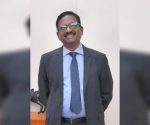The final act is over, yet this political drama refuses to end | Chennai News – Times of India

The final act is over, yet this political drama refuses to end. The President has asked the Supreme Court for an academic opinion on an issue already settled by decades of jurisprudence. This, at a time when the country is in a critical phase, plays more like theatre than necessity.President Droupadi Murmu’s request to the Supreme Court under Article143(1) of the Constitution, seeking answers to 14 questions, surprised few as it came in the wake of the recent verdict in the Tamil Nadu case concerning the governor’s delay in assenting to 14 bills. Following the judgment, there was an eerie silence from the govt. The first response came from Vice President Jagdeep Dhankhar, who said Parliament is supreme and that the judiciary cannot impose timelines or usurp the powers of the President or governors.Perhaps the one most directly affected was Tamil Nadu governor R N Ravi, who, despite being at the receiving end of the verdict, maintained a calm façade. Even after being stripped of his role as chancellor of several Tamil Nadu universities by chief minister M K Stalin, he carried on as if nothing happened.He had the temerity to go ahead with his vice chancellor meet at a hill station, acting in the capacity of chancellor of those very universities, and invited Dhankhar to play the battle tunes. Normally, when people are dissatisfied with judgments, they approach the court with review petitions, since there are no further appeals against Supreme Court orders. The court has also devised another mechanism — a curative petition — to challenge a judgment in rare cases.But to file one, a fit certificate is required from two leading senior advocates. Perhaps that’s where the problem lay — none could be found.The other option, going by Dhankhar’s battle cry, is to bring in new legislation in Parliament to overturn the basis of the judgment, a move likely to stir controversy, given the sensitivity of the issue. And so, over the past five weeks, even while being preoccupied with Operation Sindoor, they seem to have settled on the least disruptive course: seeking a Presidential opinion from the court itself.After the amendment to Article 74, which made the President a figurehead bound by the cabinet’s advice, the real seeker of the opinion is Prime Minister Narendra Modi himself. With a battery of legal luminaries at his disposal, including the attorney general, a constitutional appointee under Article 76(2) whose duty it is to advise the Union govt on legal matters, including those assigned by the President, it’s unclear why they didn’t simply seek his opinion.The developments since the Tamil Nadu verdict suggest that the govt was quietly evolving a game plan. When a similar case filed by Kerala was sought to be withdrawn, by none other than former attorney general K K Venugopal, who argued that the Tamil Nadu ruling would cover Kerala as well, the Centre objected, claiming the Kerala case was different. If that were truly the case, they could have contested the legal points then and even pushed for a reference to a larger bench.But the strategy appears more layered: to keep the legal debate simmering while opting for the least harmful exercise of seeking the court’s opinion through Article 143.Everyone familiar with a presidential reference knows there are three possible outcomes: the court may decline to give an opinion; the opinion, if given, is not binding on the President (i.e., the cabinet); it remains just that, an opinion, not enforceable by anyone, since under Article 141, only the law declared by the court is binding on all other courts. There’s also the possibility that the opinion, once received, may not be palatable to the govt.In any case, the debate can rage on endlessly.In the 75 years since the Constitution came into force, there have been several litigations over the role of the President and governors. A decisive ruling came in 1974 in the Shamsher Singh case, where governors were told to act strictly on the advice of the state cabinet and not behave like the monarch of the UK or the President of the USA. In that case, after declaring the dismissal of a district judge by the governor without cabinet advice illegal, a seven-judge bench invoked the “useless formality theory” and granted relief directly, without sending the matter back to the governor or the govt.Though that case dealt with Article 163 and the scope of the governor’s powers, the role of the governor in assenting to bills under Articles 200 and 201 is clear: the governor is not an umpire but merely an authentication authority. If a bill, once returned, is re-enacted by the House and sent back, the governor has no choice but to assent. But how long should this exercise go on?The Constitution makers chose a gentle phrase to define the time frame — “as soon as possible” or as we know it in its abbreviated form “ASAP”. But if governors use this as a licence to procrastinate, the judiciary is hardly helpless. It can direct them to grant assent to bills unjustifiably delayed. In governor Ravi’s case, with a two-year delay, the court applied the “useless formality theory” and effectively gave the assent.The term “as soon as possible” does not warrant a presidential reference to the Supreme Court. Under the Sri Lankan Constitution, the Supreme Court’s opinion is sought before a bill becomes an act, and once cleared, that law is shielded from future challenges. But in India, any law on the statute book can be challenged, by anyone, from a munsif court to the Supreme Court, irrespective of status. The Supreme Court should not be treated as an advance ruling authority as has been done under some fiscal statutes.When the opinion isn’t binding, it’s unfortunate that the Centre chooses to indulge in such luxurious extravagance, more likely to fill the pockets of some legal pundits than serve any real purpose, especially at a time when the country is going through a critical phase.From Shamsher Singh (1974) to the state of Tamil Nadu case (2025), hundreds of judgments have dealt with similar issues; seeking an academic opinion now is unnecessary. There’s no guarantee the states will abide by it either. And if ASAP is stretched to mean three months, then that is a liberal interpretation of Article 200. When something as complex as Operation Sindoor could be pulled off in eight hours, a bill passed by an elected legislature cannot be left to languish for months just because a nominated governor wants to play political ball.The Legal Aid Services Authority is meant to serve the poor, not the residents of the Mughal Gardens seeking free legal opinion, which, in any case, is not binding on anyone.(The writer is a retired judge of the Madras High Court)Email your feedback to southpole.toi@timesofindia.com















